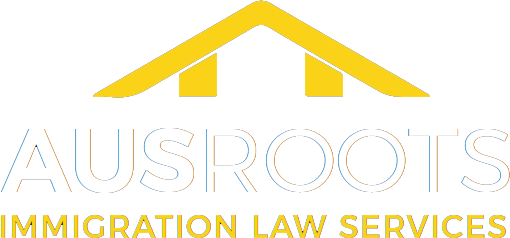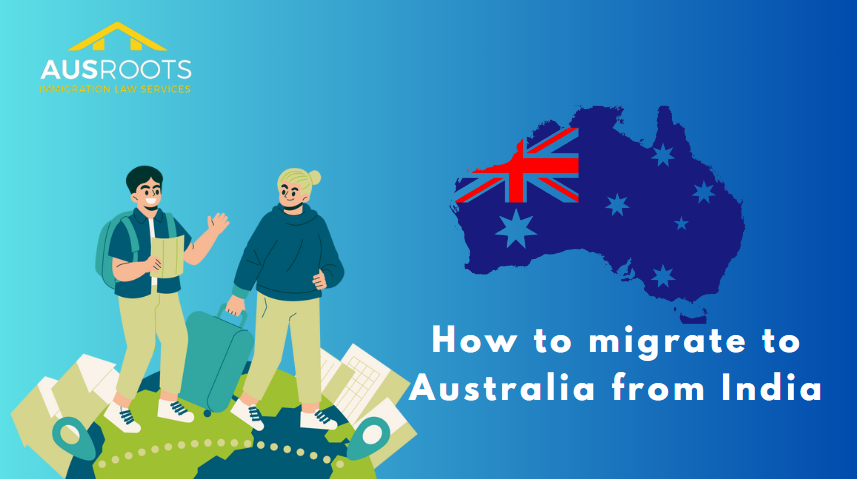How to migrate to Australia from India
Migrate to Australia from India involves a complex process, and it’s essential to understand the various visa options, eligibility criteria, and requirements before making the move.
Here is a general overview of the steps you might need to take:
Determine Your Eligibility:
Australia offers various visa options for different purposes, such as work, study, family reunion, or skilled migration. Determine which category best suits your situation.
- Use the Australian Department of Home Affairs website to check the eligibility requirements for your chosen visa category.
Choose the Right Visa:
Common visa categories include skilled migration visas (e.g., subclass 189, 190, 491), family reunion visas (e.g., subclass 300, 309, 820), and student visas (subclass 500).
- Skilled migration visas are often based on a points system, which takes into account factors like age, education, work experience, and language proficiency. Ensure you meet the points threshold.
Gather Documentation:
Collect all necessary documents, such as identity proof, educational qualifications, work experience, health assessments, and police clearance certificates. Each visa category has specific document requirements.
Language Proficiency:
If required, take an English language proficiency test, such as IELTS, PTE, or TOEFL, and achieve the minimum score necessary for your visa application.
Skills Assessment (For Skilled Migration):
If applying for a skilled migration visa, you may need to get your skills assessed by a relevant assessing authority in Australia.
Lodge Your Application:
Create an account on the Australian Department of Home Affairs website and submit your visa application online.
Pay the required application fee, which varies depending on the visa type.
Health and Character Checks:
Complete health and character assessments as required. You may need to undergo medical examinations and provide police clearance certificates.
Waiting Period:
Wait for the Department of Home Affairs to process your visa application. Processing times vary depending on the visa type and demand.
Visa Grant:
Once your visa is granted, you will receive a Visa Grant Notice, which outlines the conditions of your visa.
Travel and Settlement:
Plan your travel to Australia and ensure you meet any entry conditions specified in your visa.
Consider housing, job prospects, and healthcare arrangements.
Start Your New Life:
Upon arrival in Australia, adhere to the visa conditions and begin building your life in your new country.
It’s important to note that visa requirements and policies can change over time, so always refer to the official Australian Department of Home Affairs website or consult with a migration agent for the most up-to-date and accurate information. Additionally, consider seeking professional advice to navigate the complex immigration process successfully.
Here are some important steps to consider when planning your move to Australia:
Research and Choose a Destination:
-
- Australia is a vast country with diverse regions. Research and decide on the city or region where you want to live. Common choices include Sydney, Melbourne, Brisbane, Perth, and Adelaide.
Visa Requirements:
-
- Determine the type of visa you need based on your purpose for moving (e.g., work, study, family reunion). Refer to the official Australian Department of Home Affairs website for information on visa options and eligibility criteria.
Eligibility and Application:
-
- Ensure you meet all the eligibility criteria for your chosen visa category. Prepare all the necessary documents for your application and submit it online through the Department of Home Affairs website.
Health and Character Checks:
-
- Depending on your visa category, you may need to undergo medical examinations and provide police clearance certificates.
Financial Planning:
-
- Prepare a financial plan to cover your initial costs, such as visa application fees, travel expenses, and initial accommodation.
- Open an Australian bank account once you arrive.
Housing:
-
- Research housing options in your chosen location and arrange temporary accommodation while you search for a more permanent place to live.
Employment or Education:
-
- If you’re moving for work, secure a job before your move. If you’re studying, enroll in an Australian educational institution.
- Update your resume and network with professionals in your industry.
Healthcare:
-
- Enroll in Australia’s public healthcare system (Medicare) or arrange private health insurance.
Education (If Applicable):
-
- If you have school-age children, research schools in your area and complete enrollment.
Travel Arrangements:
-
- Book your flights and ensure you have all the necessary travel documents.
- Consider what personal items and clothing you’ll need for the move.
Cultural Adaptation:
-
- Learn about Australian culture, customs, and local etiquette.
- Get familiar with the region’s geography, climate, and amenities.
Language Skills:
-
- If English is not your first language, continue improving your English language skills.
- Consider taking English language courses if necessary.
Legal Requirements:
-
- Obtain a Tax File Number (TFN) to pay taxes and adhere to Australian tax regulations.
- Understand Australian laws and regulations, as well as your rights and responsibilities.
Social Integration:
-
- Participate in community events, join social groups, and connect with other expats to build a support network.
Migrant Services:
-
- Familiarize yourself with migrant support services available in your destination city, including legal assistance and advice on settling in.
Plan for Children and Family:
-
- If you’re moving with family, ensure they are prepared for the move and address their specific needs and concerns.
Stay Informed:
- Keep up to date with any changes in Australian immigration laws and policies that may affect your status.
Moving to Australia can be a rewarding experience, but it requires careful planning and preparation. The process may take time, so be patient and flexible. Seek assistance from migration agents or relocation services if needed to make the transition smoother.

